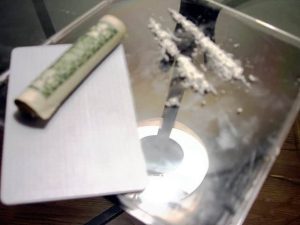Cocaine can make the user feel euphoric, positive, wide awake and generally very confident. These effects alongside the fact that many are able to drink alcohol whilst on the drug make it clear why. People take cocaine recreationally as they will be able to release their inhibitions. This then helps them find it easier to interact with others socially. However when someone takes cocaine and goes through a period of a high, they must also come down, hence the well-known term comedown. Euphoria or any other symptoms associated with a high are in a sense paid for by the negative feelings that are experienced the next day.
Progressive resistance
Furthermore, it is this period of feeling low which motivates a person to take the cocaine again in order to avoid the negative effects they are experiencing. This along with the fact that the more people take it the more they build up a resistance. The more that they need to take in order for it to have an affect means that a vicious cycle is created. This is must take more to get the same high and the low is deeper and thus they feel as though they crave more cocaine. The user may require cocaine rehab from a rehab clinic, before the cocaine use becomes hugely harmful to the users’ health.
Also see our general page on compulsive use of cocaine.
Call us now 01462 851 414 if you are worried about you or a loved one.
It can be seen therefore that cocaine is incredibly addictive, from the first time it is taken. Other than the positive state euphoria which is felt whilst under the influence of the drug there are also other factors which contribute to make cocaine very appealing. There is a certain aura around cocaine which some find very attractive. For example, cocaine often causes people to lose weight. It removes people’s appetite therefore it has caused many celebrity appeal thus causing others to seek to imitate their behaviour. Those who take cocaine may feel as though their personal standpoint has improved. Cocaine has an effect upon their status within their own social group. Making the drug even more difficult to kick and making it more appealing to others thinking about starting.
Overdosing on cocaine
The risks of cocaine are endless. People often overdose from cocaine due to the effect that cocaine has upon the heart. This includes convulsions and eventually heart failure (this risk is made even higher if other drugs or alcohol are consumed alongside it). Serious cocaine addicts often develop problems with their nose because of the fact that snorting the drug. This causes the cartilage which separates the nostrils to disintegrate. Using a lot of cocaine makes the negative side effects and the comedowns more severe. Depression and anxiety disorders are strongly linked to cocaine use. Furthermore those with mental disorders have been known to have returned to them after long periods of using the drug.
Can’t live without it
Once this has overcome you it is almost impossible to even get out of bed in the morning without the drug. This is because of the deep lows experienced without it. The intense feeling of depression one feels after they have taken cocaine. In order for the person to feel normal. They must take the drug which therefore causes it to be almost impossible to stop using without help.
The Haynes Clinic is a rehab clinic based in a rural location in Bedfordshire. Call 01462 851414 to find out more, or send in a contact form or join our live chat.

